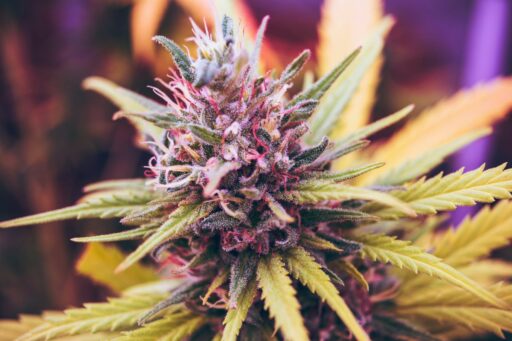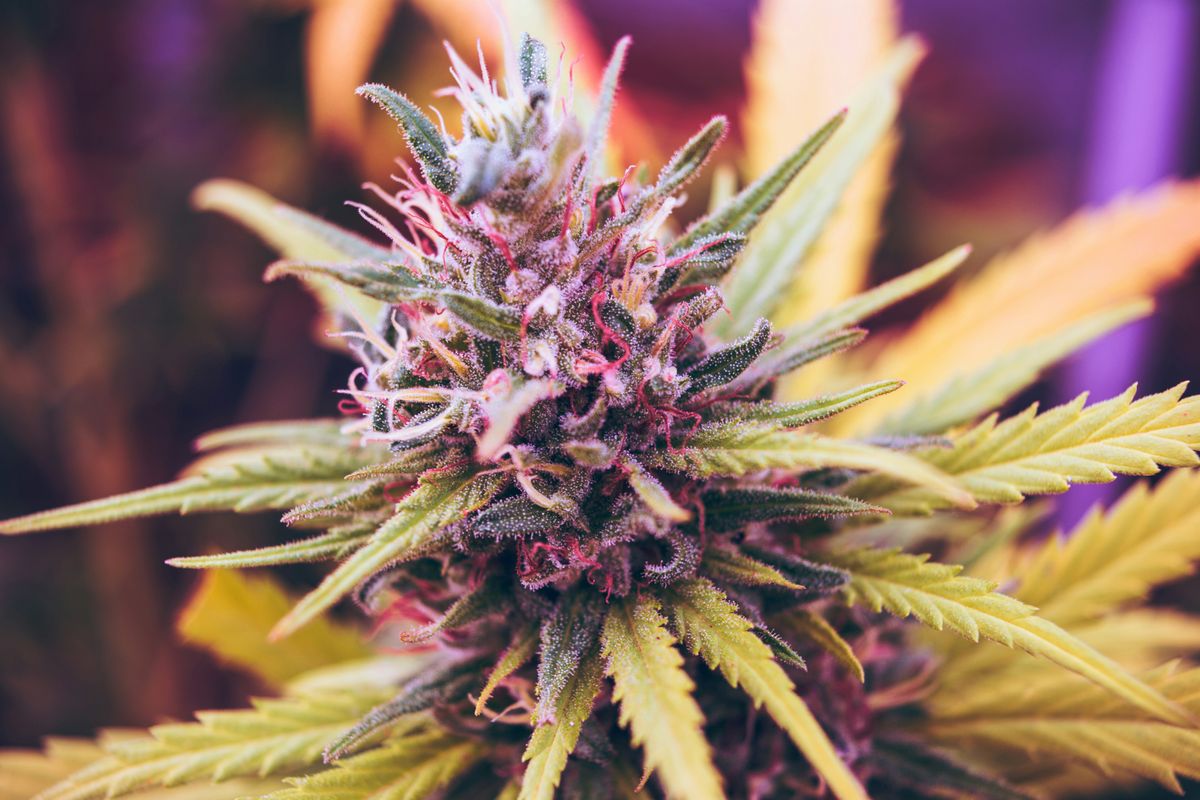The debate over whether marijuana should be legalized is multifaceted, encompassing societal, ethical, economic, and legal dimensions. This article examines the various arguments for and against marijuana legalization, considering the impacts on public health, the economy, crime rates, ethical principles, and the criminal justice system. By analyzing these factors, we aim to provide a comprehensive overview of the potential consequences of legalizing marijuana, drawing upon relevant studies, expert opinions, and comparative analyses.
Key Takeaways
- Legalization could lead to significant economic benefits through job creation and tax revenue, but may also impact existing markets and necessitate substantial regulatory costs.
- Public health outcomes are a major concern, with debates focusing on the potential for both harm reduction and increased accessibility leading to abuse.
- Ethical considerations include the comparison of marijuana to other substances, cultural views, and the principle of personal autonomy.
- Marijuana legalization has profound implications for the criminal justice system, including the potential to address sentencing inequities and the influence of the private prison industry.
- Policy and legislative challenges involve navigating conflicts between state and federal laws, learning from states that have already legalized marijuana, and considering international drug policy reforms.
The Societal Impact of Marijuana Legalization

Public Health Considerations
The debate over marijuana legalization often pivots on public health outcomes. The primary concern is the potential for increased use and the associated health risks, particularly among young people. However, proponents argue that regulation could lead to safer, controlled consumption and reduce the exposure to more dangerous, unregulated markets.
- Youth Exposure: Legalization could lead to higher accessibility and a potential increase in use among minors.
- Addiction Risks: Marijuana has addictive properties, and its legalization may result in higher rates of dependency.
- Health Benefits: For some individuals, marijuana provides relief from chronic pain and other medical conditions.
- Regulation and Quality Control: Legal markets can ensure product safety and reduce the risks of contamination.
The balance between public health protection and individual freedom is a delicate one. Legalization could offer a controlled environment for marijuana use, but it also necessitates robust public health strategies to mitigate potential negative impacts on society.
Economic Implications
The debate over marijuana legalization encompasses not only health and social concerns but also significant economic considerations. The potential economic benefits of legalizing marijuana are multifaceted, ranging from job creation to tax revenue generation. However, the economic impact of marijuana criminalization has also been substantial, with enforcement costs estimated to be in the billions.
- Job creation in various sectors, including agriculture, retail, and ancillary services.
- Tax revenue that can be allocated to public services and infrastructure.
- Savings on law enforcement and judicial expenses related to marijuana offenses.
The shift from an illicit to a regulated market could lead to a redistribution of economic power, with implications for social equity and class mobility.
While the promise of economic growth is alluring, it is crucial to consider the full spectrum of economic implications, including the potential for market saturation and the challenges small businesses may face in competing with larger corporations.
Shifts in Crime Rates and Law Enforcement
The debate over marijuana legalization often includes the potential impact on crime rates and law enforcement practices. Decriminalization of marijuana may lead to a reduction in arrests for possession, freeing up law enforcement resources to address more serious crimes. However, the relationship between legalization and overall crime rates is complex and multifaceted.
- Legalization could decrease the black market and associated violent crime.
- It may alter police priorities and resource allocation.
- There could be an increase in DUI incidents related to marijuana use.
The shift in law enforcement focus from minor drug offenses to more serious crimes could represent a significant change in the criminal justice landscape, potentially affecting class divisions and systemic biases.
The introduction of legal marijuana markets also necessitates the development of new regulatory frameworks, which can lead to a different set of challenges for law enforcement, including the enforcement of regulations and the prevention of diversion to the black market.
The Ethical and Moral Dimensions

Comparative Analysis with Other Substances
When evaluating the legalization of marijuana, it is crucial to compare its effects and societal role with those of other legal and illegal substances. The relative harm and benefits of marijuana as opposed to alcohol and tobacco often take center stage in this debate.
- Alcohol and tobacco are both legal substances that have been historically accepted despite their well-documented health risks.
- Marijuana, on the other hand, is often cited for its medicinal properties, though it is not without potential risks.
- The addictive potential of substances is a key factor; while nicotine is highly addictive, marijuana’s addictive properties are generally considered to be less severe.
The discussion around legalization also touches on the inconsistency of legal status between substances that vary widely in terms of health impact and social costs.
The following table summarizes key aspects of marijuana compared to other substances:
| Substance | Legal Status | Addictive Potential | Medicinal Use | Social Cost |
|---|---|---|---|---|
| Alcohol | Legal | High | Limited | High |
| Tobacco | Legal | Very High | None | High |
| Marijuana | Varied | Moderate | Extensive | Moderate |
Cultural and Religious Perspectives
The debate over marijuana legalization extends beyond legal and economic considerations, touching deeply on cultural and religious perspectives. In many societies, marijuana has been used for centuries, not only for medicinal and recreational purposes but also as a significant part of spiritual rituals and cultural ceremonies. The plant’s status varies greatly across different cultures, with some viewing it as a sacred herb while others see it as a dangerous drug.
- In Rastafarianism, marijuana is considered a sacrament that cleanses the body and mind, and brings the spirit closer to the divine.
- Conversely, some conservative religious groups staunchly oppose marijuana use, equating it with moral decay and societal harm.
The media plays a pivotal role in shaping public opinion on marijuana. Popular culture often depicts marijuana use in a way that can influence societal attitudes, either normalizing its use or reinforcing negative stereotypes. This portrayal can have a profound impact on the acceptance of marijuana within a community, potentially affecting the outcome of legalization debates.
The intersection of cultural norms, religious beliefs, and media representation forms a complex backdrop against which the legalization of marijuana is contested.
Personal Autonomy and Freedom of Choice
The debate over marijuana legalization often hinges on the principle of personal autonomy and the freedom of choice. The right to make decisions about one’s own body and lifestyle is a fundamental aspect of a free society. Proponents of legalization argue that adults should have the right to choose whether to consume marijuana, just as they do with alcohol and tobacco.
- Personal autonomy is respected in various aspects of life, such as career choice and religious practice.
- Freedom of choice is considered a cornerstone of democratic societies.
- Legalization would allow individuals to make informed decisions about marijuana use.
The question of whether the state should have the power to criminalize an activity that is personal and does not harm others is central to this argument. Legalization would shift the focus from punitive measures to education and informed decision-making.
Marijuana and the Criminal Justice System

Inequities in Drug Sentencing
The disparities in drug sentencing reveal a stark picture of class-based discrimination within the criminal justice system. Poorer individuals often face harsher sentences, less access to legal resources, and higher rates of incarceration. This systemic bias does not address the root causes of crime and continues to disadvantage underrepresented groups.
The privatization of prisons exacerbates these issues, as the profit-driven motives of the prison industrial complex fuel a cycle of incarceration that disproportionately affects the poor, reinforcing class-based inequities.
- Economic inequalities and barriers to class mobility are perpetuated by discriminatory legislation and institutional constraints.
- The media’s portrayal of these issues often reinforces the existing disparities, influencing public perception and policy.
- Addressing classism within the criminal justice system requires an intersectional approach that acknowledges its links with race and gender.
The Effects of Decriminalization
The decriminalization of marijuana has been a pivotal step in addressing the disparities in the criminal justice system, particularly regarding the incarceration rates of minority groups. Evidence suggests that decriminalization can lead to a reduction in arrests for marijuana possession, which historically have disproportionately affected underrepresented communities.
- Decriminalization has the potential to alleviate the systematic prejudice within the criminal justice system.
- It challenges the profit-driven motives of the private prison industry.
- By reducing the number of non-violent offenders in prison, resources can be redirected towards addressing the root causes of crime.
The shift towards decriminalization represents a significant move away from punitive approaches to drug policy, emphasizing rehabilitation and social equity.
However, the transition is not without its challenges. The persistence of inequality and the influence of the prison industrial complex remain substantial hurdles to overcome. Decriminalization alone cannot rectify the entrenched class divisions or the systematic bias against poorer individuals within the judicial system.
The Private Prison Industry and Legalization
The debate surrounding marijuana legalization extends into the complex web of the private prison industry. The profit-driven motives of private prisons have significant implications for drug policy and incarceration rates. Private facilities are often accused of exacerbating the cycle of imprisonment, particularly for non-violent drug offenses, due to their business model that relies on a steady influx of inmates.
- The private prison industry’s growth correlates with an increase in incarceration for drug-related offenses.
- Legalization could lead to a reduction in inmate populations, thereby impacting the revenue of private prisons.
- There is a moral question regarding the commodification of incarceration and its alignment with public interest and justice.
The intersection of justice and profit in the context of private prisons raises profound questions about the priorities of our criminal justice system. The potential for marijuana legalization to disrupt this dynamic is a pivotal aspect of the broader legalization debate.
Economic Arguments for and Against Legalization

Potential for Job Creation and Tax Revenue
The debate surrounding the legalization of marijuana often centers on its potential to stimulate economic growth. Legalization could lead to significant job creation in various sectors, including agriculture, retail, and ancillary services. This expansion of the job market is particularly relevant in areas suffering from high unemployment rates.
In addition to job opportunities, legalization allows governments to impose taxes and fees on cannabis products. This can provide a new revenue stream for public funds, which could be allocated to various social programs, education, and infrastructure projects. The table below illustrates a hypothetical example of the tax revenue generated from marijuana sales in a given year:
| Fiscal Year | Tax Revenue (in millions) |
|---|---|
| 2021 | $500 |
| 2022 | $600 |
| 2023 | $700 |
The economic benefits of legalization extend beyond direct job creation and tax revenue. They also include the reduction of costs associated with the enforcement of marijuana prohibition laws, which can be substantial.
However, it is crucial to consider the potential downsides, such as the impact on public health and the possibility of increased consumption due to easier access. The long-term economic effects remain a subject of ongoing research and debate.
Impact on Existing Markets and Small Businesses
The legalization of marijuana presents a complex landscape for existing markets and small businesses. On one hand, it opens up new opportunities for entrepreneurs and can invigorate local economies. Small businesses may thrive by diversifying into the cannabis industry, offering products and services that cater to a new consumer base. However, the transition is not without its challenges.
For established markets, the introduction of legal cannabis can lead to a shift in consumer spending. Traditional businesses might experience a decline in sales as discretionary income is redirected towards marijuana products. This is particularly true for industries that compete directly with cannabis, such as alcohol and tobacco.
Small businesses face unique hurdles, including regulatory compliance, which can be costly and complex. The need for age verification systems, secure facilities, and adherence to strict marketing guidelines can create barriers to entry that favor larger players with more resources. An example of this is a fledgling Marijuana News website with minimal content, struggling to navigate the legal requirements such as age verification and community engagement.
- Regulatory compliance costs
- Secure storage and facility requirements
- Marketing and advertising restrictions
- Competition with larger entities
The landscape for small businesses in the cannabis market is one of opportunity tempered by significant operational and regulatory challenges.
Costs of Regulation and Enforcement
While the potential economic benefits of legalizing marijuana are often highlighted, the costs associated with regulation and enforcement are equally significant. Regulatory frameworks require substantial investment to ensure compliance, monitor legal transactions, and prevent illegal activities. These costs can be broken down into several key areas:
- Development and maintenance of regulatory bodies
- Training and deployment of enforcement personnel
- Creation of compliance systems for businesses
- Public education campaigns about legal marijuana use
The initial setup and ongoing operational expenses can strain state budgets, especially in the early stages of legalization. Moreover, the need for continuous oversight and updates to regulations as the market evolves adds to the long-term financial commitment.
The balance between the economic influx from marijuana sales and the outflow for regulatory measures is delicate. States must carefully plan and allocate resources to avoid deficits and ensure that the legalization yields a net positive impact on the economy.
It’s important to note that legalizing weed can lead to a reduction in law enforcement costs associated with enforcing marijuana laws. This includes the costs of arrests, prosecutions, and incarcerations, which can be substantial.
Policy and Legislative Considerations

State vs. Federal Law Conflicts
The debate over marijuana legalization is further complicated by the intricate conflicts between state and federal laws. States have been increasingly adopting policies that decriminalize or legalize marijuana, yet these state laws often directly contradict federal regulations where marijuana remains illegal under the Controlled Substances Act. This dichotomy creates a complex legal landscape for businesses, consumers, and law enforcement agencies.
- At the federal level, marijuana is classified as a Schedule I drug, indicating a high potential for abuse and no accepted medical use.
- Several states have legalized marijuana for medical and recreational use, challenging the federal government’s stance.
- The tension between state and federal law affects banking, as federally insured banks are hesitant to service marijuana-related businesses.
The current situation necessitates a careful examination of the legal frameworks to reconcile state initiatives with federal law. The goal is to ensure a coherent policy that respects the autonomy of states while addressing federal concerns.
Recent discussions in the political arena suggest a shift towards resolving these conflicts. Legalization advocates argue that reclassifying the drug to schedule III from schedule I is a step in the right direction, but it does not fully resolve the state and federal law conflicts.
Lessons from States with Legalized Marijuana
The experiences of states that have legalized marijuana offer valuable insights into the potential outcomes of nationwide legalization. States with legalized marijuana have seen a variety of impacts, ranging from economic benefits to shifts in law enforcement priorities.
- Economic Growth: States like Colorado and Washington have experienced significant increases in tax revenue from marijuana sales. This revenue has been allocated to various public services, including education and healthcare.
- Public Safety: There has been a notable decrease in arrests for marijuana possession, freeing up law enforcement resources for other priorities.
- Regulatory Challenges: States have also faced challenges in creating effective regulatory frameworks to manage the production, distribution, and sale of marijuana.
The lessons from these states suggest that while there are clear benefits to legalization, there are also important considerations and challenges that must be addressed to ensure responsible implementation and maximization of potential advantages.
International Precedents and Drug Policy Reform
The global landscape of marijuana policy is a patchwork of approaches, with some countries embracing legalization, while others maintain strict prohibitions. The examination of international precedents offers valuable insights into the potential outcomes of marijuana legalization.
- Uruguay became the first country to fully legalize marijuana in 2013, setting a precedent for state control over the cannabis market.
- Canada followed suit in 2018, with a focus on eliminating the illegal market and ensuring public safety.
- In the Netherlands, marijuana is technically illegal, but the country’s famous ‘coffee shops’ are allowed to sell it under regulated conditions.
- Portugal decriminalized all drugs in 2001, leading to significant reductions in drug-related harm and no significant increase in drug usage rates.
The diversity of international approaches provides a spectrum of results that can inform the debate on legalization within the United States. The impact on public health, crime rates, and economic factors varies from country to country, suggesting that policy outcomes are heavily influenced by the specific regulatory frameworks in place.
A group of lawyers argues in a newly released legal opinion that contrary to what the Drug Enforcement Administration (DEA) has asserted in the past, moving marijuana to Schedule III would not violate international treaties. This perspective opens the door to reevaluating the United States’ stance on marijuana within the context of international law and agreements.
Conclusion
In conclusion, the debate over the legalization of marijuana is multifaceted and deeply intertwined with broader societal issues such as classism, criminal justice reform, and economic inequality. As we have explored the arguments for and against legalization, it is clear that the implications extend far beyond the individual choice to use cannabis. Legalization carries the potential to address systemic class discrimination within the judicial system, alleviate economic disparities, and challenge institutional constraints that perpetuate inequality. However, it also demands careful consideration of public health, safety, and the impact on communities. Ultimately, the decision to legalize marijuana should be informed by a comprehensive understanding of these factors, with a commitment to fostering a more equitable and inclusive society. The conversation around marijuana legalization is not just about the substance itself, but about the kind of society we want to build and the values we choose to uphold.
Frequently Asked Questions
What are the public health considerations in the debate on marijuana legalization?
Public health considerations include evaluating the potential impact on addiction rates, mental health, youth access, and whether legalization leads to increased or decreased use of marijuana and other substances.
How could marijuana legalization affect the economy?
Economic implications of legalization involve potential job creation, tax revenue, impact on law enforcement costs, and the influence on existing markets, including pharmaceuticals and alcohol.
What shifts in crime rates and law enforcement might occur with marijuana legalization?
Legalization could lead to a decrease in arrests for marijuana-related offenses, potentially freeing up law enforcement resources. However, concerns about an increase in driving under the influence and other public safety issues are discussed.
How does marijuana legalization intersect with issues of personal autonomy and freedom of choice?
The debate often includes arguments about an individual’s right to choose whether to use marijuana, balanced against potential societal harms. This touches on broader discussions about the role of government in regulating personal behavior.
What are the potential effects of marijuana legalization on the criminal justice system?
Legalization could lead to reduced prison populations and address some inequities in drug sentencing, especially among marginalized communities. However, it may also impact the private prison industry and existing legal frameworks.
How do state and federal laws interact when it comes to marijuana legalization?
The conflict between state laws that have legalized marijuana and federal law that still classifies it as illegal creates a complex legal landscape. This can affect banking, law enforcement, and interstate commerce.





